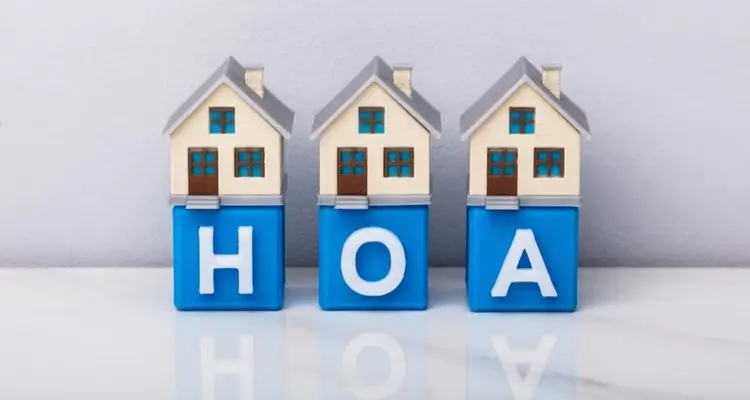
Some sellers may be hesitant to accept offers from buyers using an FHA
repairs to the home to pass an
FHA are performed to make sure are purchasing a safe and livable house.
Rate Search: Compare Rates and Loan Offers in Minutes
FHA Home Inspection Checklist
Most home inspectors check many of the same possible issues. However, there is not a universal home inspection checklist that every company uses. Make sure that your inspection report at least includes the following.
Home Inspection Checklist | |
Foundation | Ensure that the foundation is stable. No cracks in the foundation and walls. |
Drainage | Check that water is flowing away from the foundation. |
Roof | Is the roof in good condition,with several more years left before it needs replacing. Asphalt shingles have a lifespan of 15-40 years. |
Exterior | The exterior of the home should be in good condition. There should be no rotting wood, cracks in the brick, worn out weather seals. |
Interior | Check the ceilings, walls, doors, and baseboards. Is everything in acceptable order for you. |
Electrical | All electrical outlets and lights must function properly. |
Water sprinklers | If the property has a sprinkler system installed all zones must be tested to ensure functionability. |
Air conditioning and heater | Heating and air condition systems must be inspected to ensure they are completely operational. |
Appliances | All home appliances must be tested to ensure they work properly. |
Odor | If the home smells, people assume it was the previous owners, not the smell of the house itself. Make sure all areas of the home are dry, and nothing is leaking. Wet areas can cause musty smells. |
Termite Inspection | Interior and exterior of the home should be inspected for termites. Existing termite treatment systems should be checked. |
Mold Inspection | The home must be 100% free of mold. |
Water Heater | Water heater must be tested to ensure it is functioning properly. |
Items that Need to be Repaired Before Closing
The Federal Housing Administration will be looking at conditions that may pose a threat to health and safety. Some things may need to be repaired before the is approved. They include but are not limited to:
- Fixing peeling paint in homes built before 1978. They may contain lead.
- Downspouts that are not pained
- Rain gutters that are broken
- Exterior doors that may not open or close properly
- Rotting portions on the property that may need to be removed
- Exposed wires
- Leaks in the plumbing system
- Leaking or roofs in need of repair
- A roof that is not expected to last more than 3 years
- Signs of infestation
- Rotting supports
- Missing appliances such as the oven
- Bedrooms windows with bars that do not open
- Issues or cracks in the foundation
- Wet basements or still water
- Swimming pools that have been neglected
- A water heater without pressure release values
- Fences that are broken or showing signs of distress
Unnecessary Repairs
While some repairs will need to be made before a home passes an some other things may be wrong with the home. They may not need to be done before closing or before the is approved, but the should be aware of them and the potential trouble they may cause in the future. They include
- Paint that is peeling in homes that were built after 1978
- Cracked windows
- Leaking faucets
- Carpet that is worn out or flooring that is in poor condition
- Exterior doors that are functional but in poor condition
- Debris under the home that should be removed
- A previous infestation from pests
- Flat roofs that may need to be replied
FHA home inspectors do not worry about cosmetic defects. A home will not be rejected for not having a modern style. Normal use of a home is expected as long as it does not pose a risk to health and safety.
These are some things that the FHA administration will want in order before approving a person for an . The property will need to be safe and up to government codes.
These loans have been developed to help people get into homes, but the home needs to be safe. When purchasing a home,e there is an FHA safety checklist it will need to pass to ensure the home is safe for the .
FHA Property Standards
FHA Minimum Property Standards | |
The home must be complete and "marketable" | The interior and exterior should be a complete home. If the kitchen is not complete, or other structures are not present, it will not meet the FHA home requirements. |
Must be accessible | The property should have public access and not require trespassing on private property to enter. |
Safe Access | The home should be safe to access from a public road. |
Free from Hazards | The property should be free from any hazards such as lead-based paint, visible electrically wiring, etc. |
Wells and Septic Tanks
There must be a minimum distance between the wells and the . The will need to be at least 50 feet away from the residence. The well needs to be 10 feet away from the residence. If this distance is not met, the homeowner may need to fix it.
Converted Garages
This may not need to be repaired, but it is up to the underwriter’s decision if this type of garage can stay or if it will need to be fixed. In some cases, it may need to be taken apart. The can give a value to the home without the converted garage and, in some cases, may deduct the cost for removing the garage from the value of the home.
Non-Permitted Additions
If the seller has another structure on their property, this could be a big safety issue, and the loan approval process may be delayed if not up to code. If the additions are not up to code, it is said to be a danger. It may need to be removed, or repairs may need to be made before your loan is approved.
Common Problems found during FHA Home Inspection
- Faulty wiring. Outdated and worn-out electrical systems are the most common problem, especially in older homes.
- Roof problems. A common issue is worn-out roofs that need to be replaced.
- Plumbing issues. Worn out pipes and repairs needed to toilets.
- Small items were not replaced by the previous owner that could mean big problems in the future.
- Air Conditioning and Heating Systems. Systems that were not installed correctly or not maintained are another problem you need to watch out for
- Minor Structural issues. Drainage. The gutter system does not drain water away from the foundation.
- Gaps in the windows that can air and water leaks.
- Attics with poor insulation and ventilation
- Damaged water heater
FHA Apprisal Process
All FHA loans require a home appraisal and inspection prior to closing. The FHA appraisal determines the market value of the property. Lender use the appraisal to calculate the loan-to-value ratio (LTV ratio). The maximum LTV ratio for FHA mortgages is 96.5%.
A licensed FHA home appraiser will determine the market value of a property by looking at comparable home sales in the area. The square footage, home condition, number of rooms and bathrooms, and special features.



